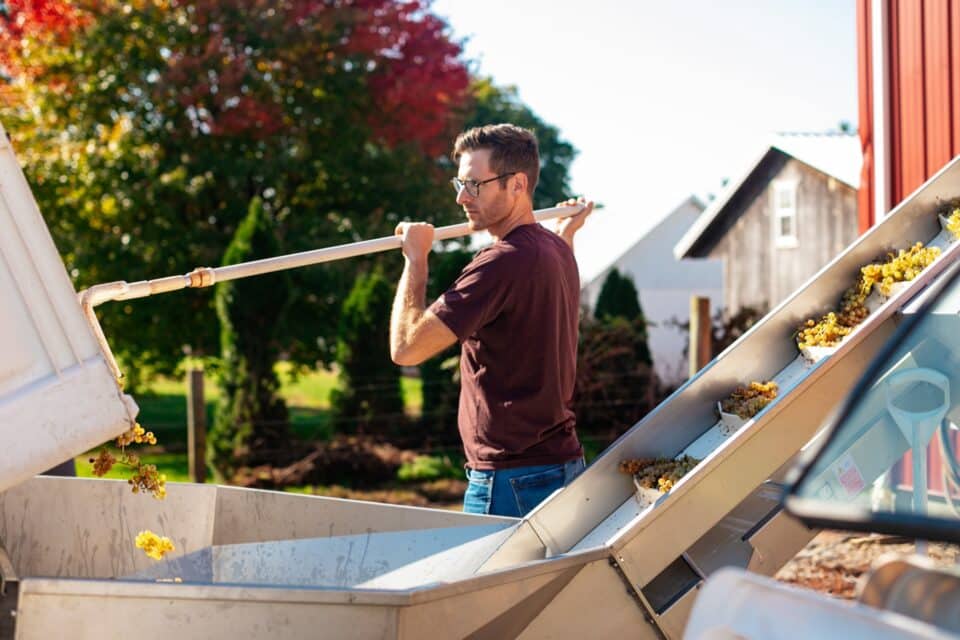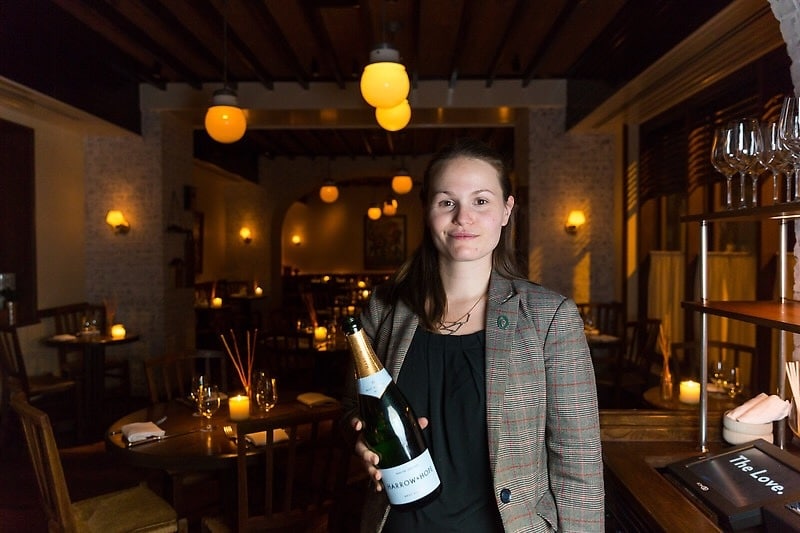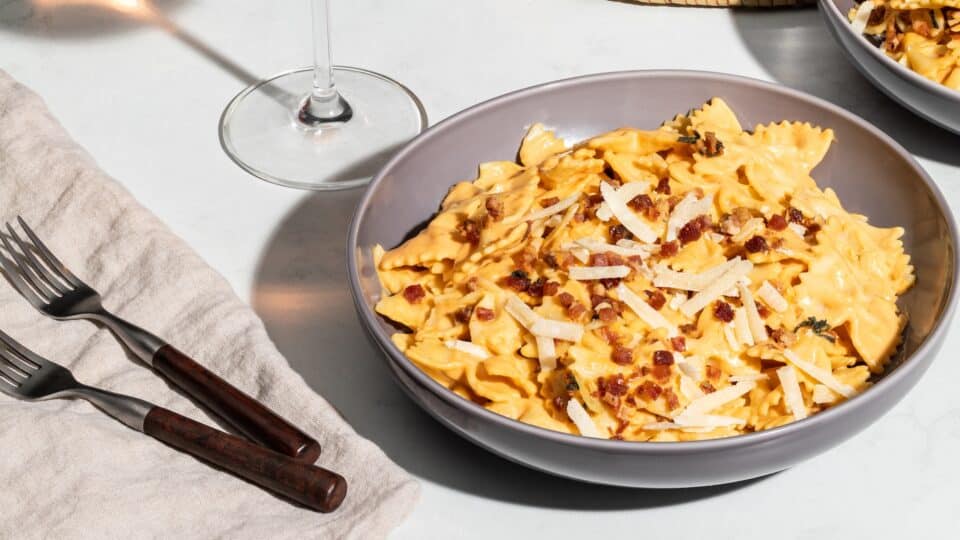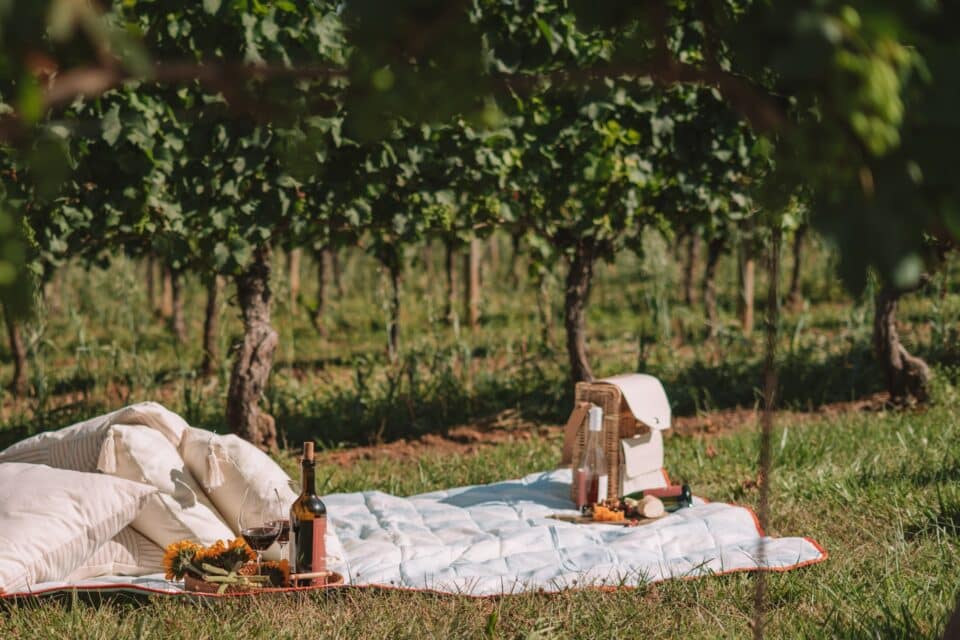Four doctors open a winery: It sounds like the beginning to a classic joke, but it’s the true origin story behind Paradocx Vineyard, a Pennsylvania winery located in Landenberg, tucked into the Southeastern corner of the state.
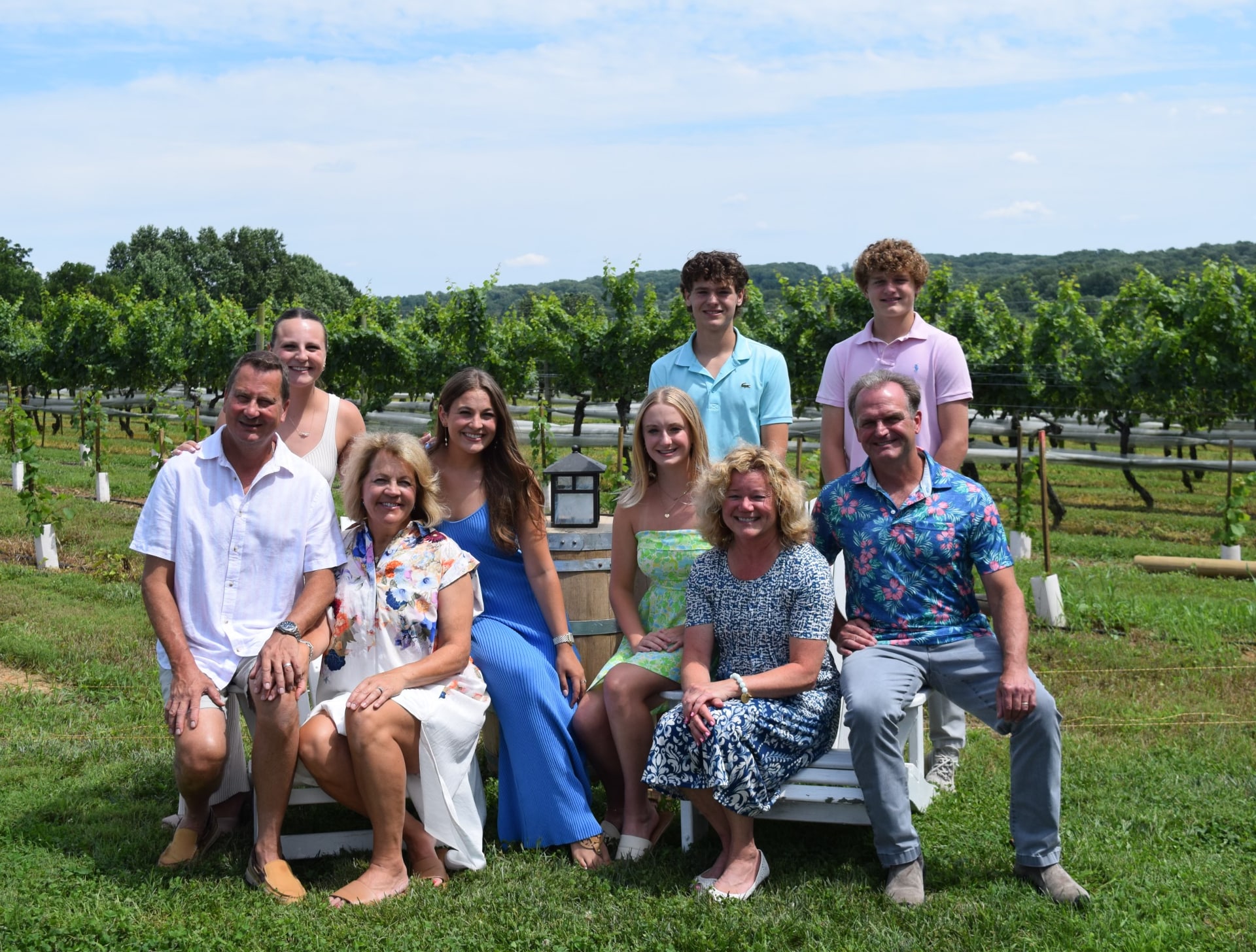
David and Carol Hoffman (L) and Mark and Joanne Harris (R) with their families at Paradocx Vineyard
The shared dream of the co-owners David and Carol Hoffman and Mark and Joanne Harris began to take shape in the early 1990s, when the two couples were wrapping up their respective medical school residencies (Paradocx — get it?). In the time since, their operations and products have grown and evolved, and the Pennsylvania wine industry has changed and grown around them, as well. All the while, the Hoffman and Harris families have stayed committed to their founding ethos: to be stewards of the land, and to carry the work in the vineyard through to the winemaking processes in the cellar.
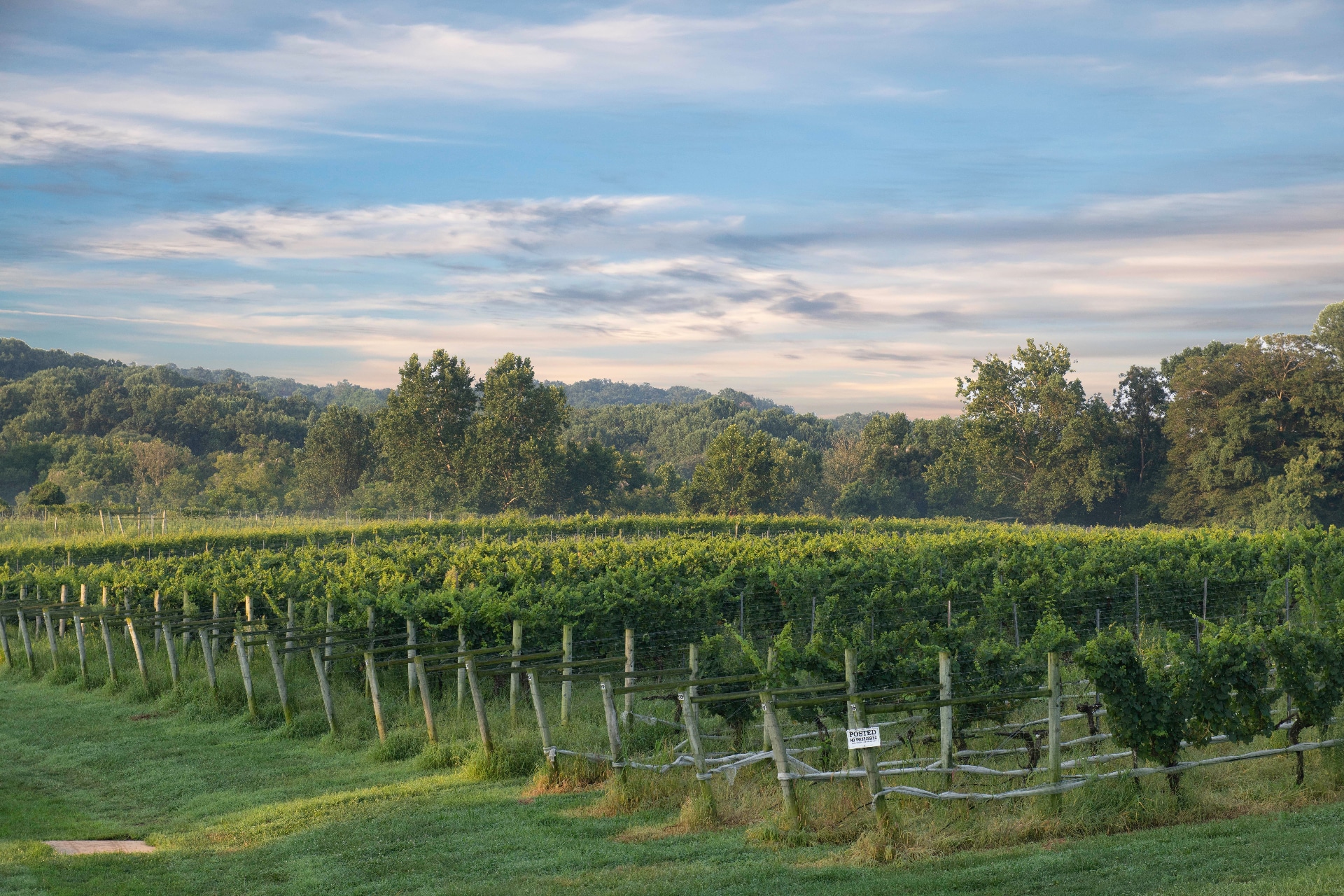
We wanted to dig deeper into the history and philosophy driving this stalwart of the Pennsylvania wine community, and enjoyed a conversation with David Hoffman and Trish Brown, Paradocx’s General Manager. Learn more about their story in this installment of PA Vines & Wines:
PA Eats: How did the four founders of Paradocx arrive at the decision to start a vineyard and a winery here in Pennsylvania?
David Hoffman: We joke that maybe it started because we all had too much wine one night! But we did have this feeling that in addition to practicing medicine, we wanted to do something agriculture related. The four of us had an interest in wine, but no one had a background in farming. At first, we were more interested in what you might call “gentleman farming.”
We all knew we wanted to plant either a vineyard or an orchard. We bought this property, just over 100 acres, in 1994. We bought the property when our wives were still in training, so it took some time to build up the capital to do anything more than start our practices. We moved into two separate houses on the property. The Harrises wanted to live on the old farmhouse on the property and we built our house. We felt it was important that we all live on the vineyard.
Can you describe the Paradocx property? Why did you think it would make a good site for a vineyard?
Hoffman: Our land is situated right in the southeastern corner of Chester County, only about 12 miles from both the Delaware Bay and the Chesapeake Bay. The area receives moderating weather from those two bodies of water. We’re in the warmest growing climate of any area of Pennsylvania, our soils are very well drained, and we slope southeast for the most part.
We had some idea that the land would do well. We did a fair amount of land prep and soil testing, so we knew how we needed to ameliorate the soils. A lot of the fields had been encroached by the woods over time, and so removed a lot of overgrowth. For the first several years, we only had summer help and one full-time employee and would do the rest after office hours. We got our first plantings in the ground in 1998. Our families wondered where we disappeared to for those first years!
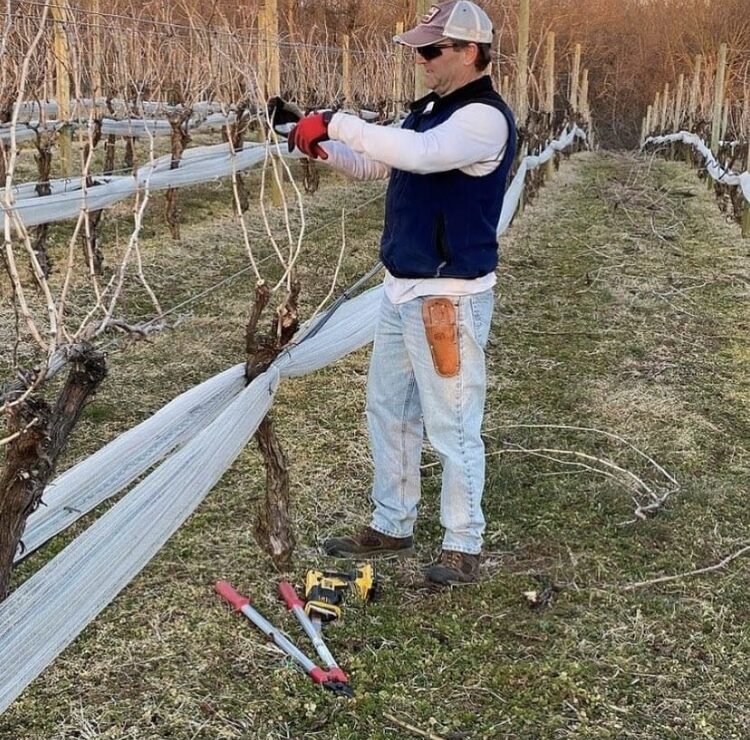
David Hoffman pruning the vines at Paradocx Vineyard
How did you learn to plant a vineyard? And how did you decide what kinds of grapes to invest in?
Hoffman: We worked with a consultant who’d started a vineyard a few years ahead of ours. There were certain varieties we wanted to grow and knew grew well in PA, and some that our consultant suggested. We started with Pinot Grigio, Cabernet Sauvignon, Cabernet Franc, Chambourcin and Vidal. We tried to grow anything but Chardonnay, but that became one of the significant plantings, both because of what was available, and because of consumer interest.
We also spoke with some wineries who we planned to sell grapes to, so we could anticipate what grapes they needed. Initially, we planned to grow and sell wine grapes for years, and then start our own winery. But that transition started a lot quicker than we initially planned.
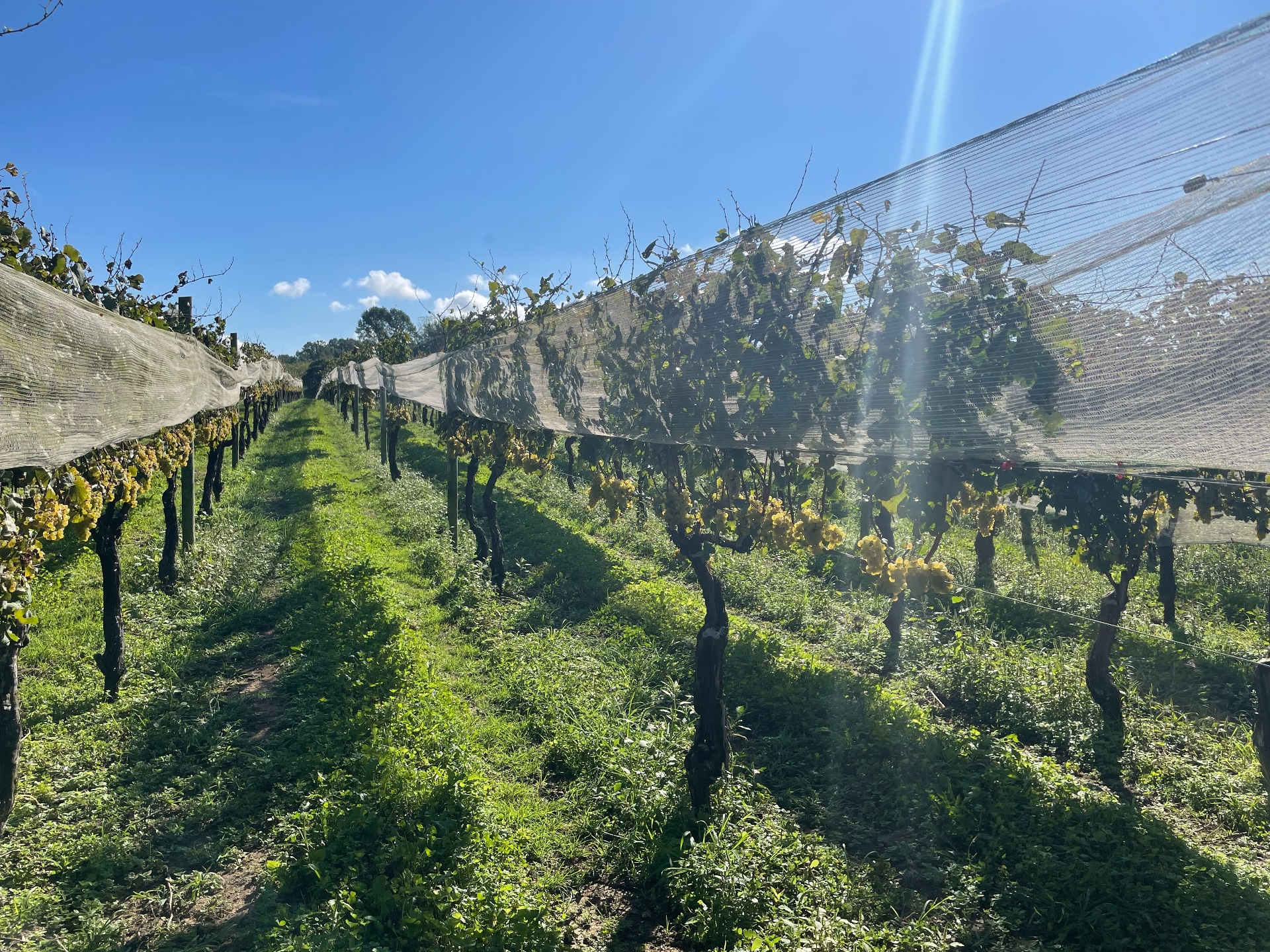
Making wine wasn’t part of the original plan? Why did you pivot Paradocx to becoming a winery in addition to a vineyard?
Hoffman: Our philosophy has always been that wine is made in the vineyard. So when we’d grow and harvest the grapes and sell them off to other wineries, we had a bit of a disconnect, and we started to feel like we wanted to continue the winemaking process ourselves.
First, we started by making our wine with another nearby winery while we converted a garage and pole barn into a winery. We used that for about three years, then we built a brand new winery in 2008. We were able to build it into a hillside, and faced it north so there’s a lot of natural cooling. We put the barrel room completely underground. It was nice that we didn’t have to try to fit the winery into an old structure.
What were the first wines that Paradocx made? Was there a learning curve in going into that new chapter?
Hoffman: We made five wines the first year: Chardonnay, Viognier, Pinot Grigio, and then two red blends, Leverage and Merge. We released the red wines a little earlier than the whites; we tend to release the reds later now.
And yes, there was a large learning curve. There are varieties we just don’t grow anymore, some because they were too challenging for the area, and some because of economies of scale. It’s nice to make larger volumes of wine, it’s actually easier than making small batches. Recently, we’ve been trying some varieties, like Petit Manseng, that have done well in Maryland and Virginia. This is in response to the changing climate.
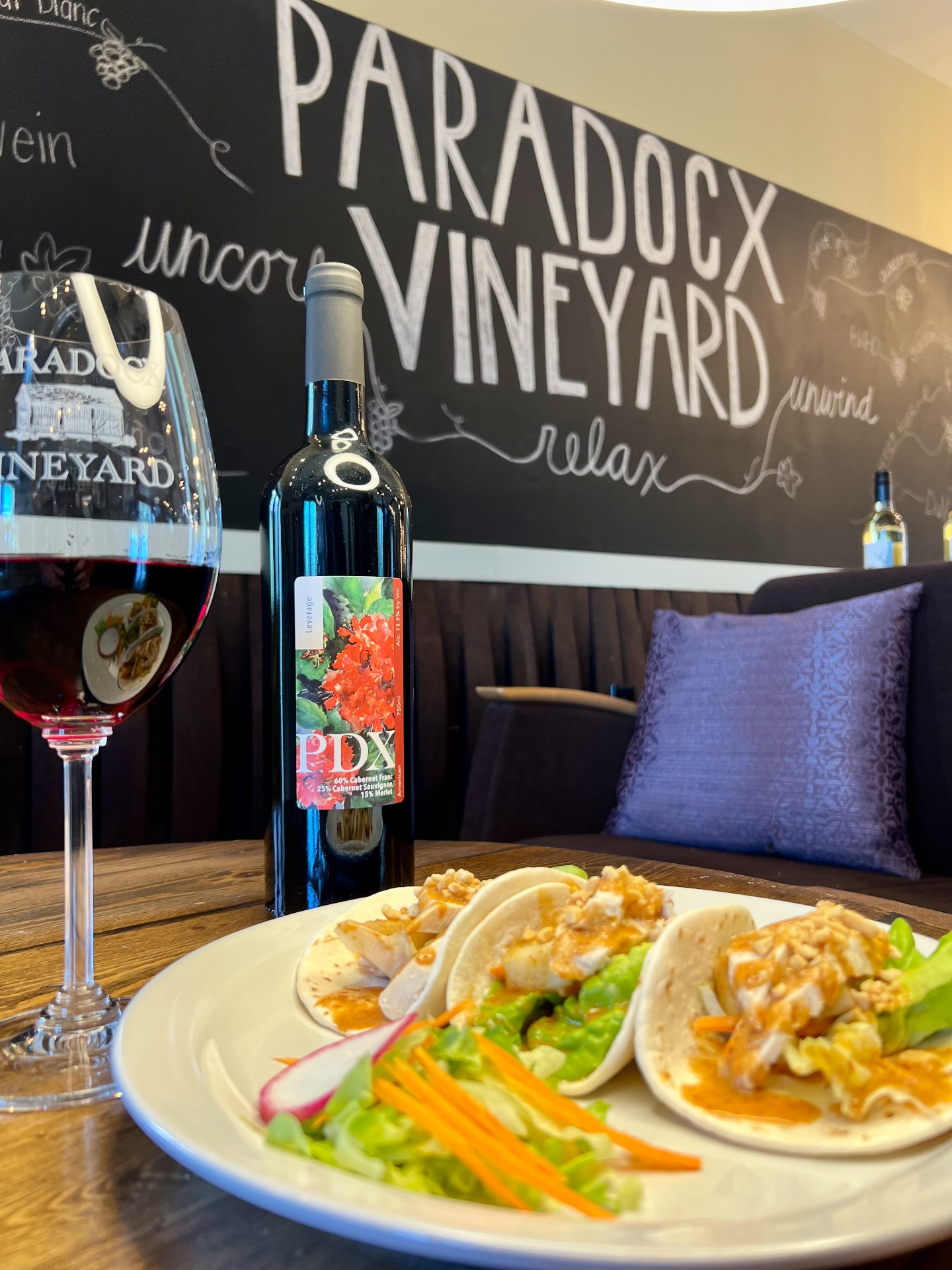
Have you had to change or evolve your offerings based on what you’ve found consumers want?
Trish Brown: In the beginning, we quickly learned that we needed to have sweet wines if we were going to be a destination winery. We’re dry wine drinkers but also appreciate that our customers enjoy the full range of wines. To try to stay true to our original philosophy of the vineyard being the source of the wine, we have a PA Estates wine program. This is more of a boutique-style series of dry wines that are either made from our vineyards or other local vineyards that we closely work with. We only release six of these wines per year.
Do you purchase fruit in addition to using estate-grown grapes?
Hoffman: Yes, we had to start buying fruit, especially with the sweet wines. Certain varietals, such as Niagra, Catawba and Concord, lend themselves to be enjoyable in sweeter wines, and those grow in other parts of PA. We keep our land focused on the varietals for drier wines. Then, there are certain wines, including some red varietals and Chardonnay, where we need to buy more than we grow to keep up with our production.
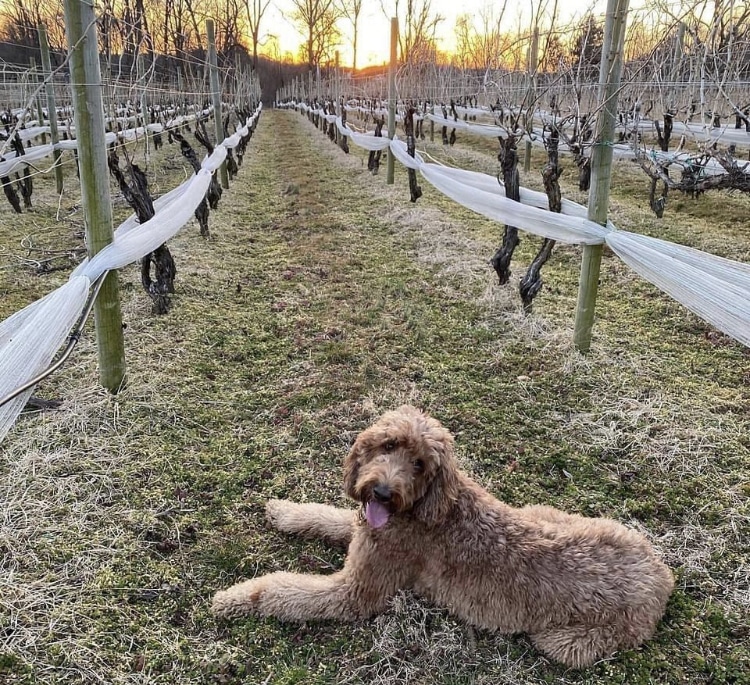
You’ve mentioned your philosophy of land stewardship and how wine starts in the vineyard. How do you carry that out on a practical level?
Hoffman: In the vineyard, although we’re not organic, we approach our pesticide use through sustainability. Newer pesticides are more environmentally friendly, and we incorporate those into controlling pests, which can be anything from microbes to birds and deer. Because of the humid the East Coast can be, fungus is an especially big challenge.
Brown: We’re a small, family-owned operation. We’re hands-on, and we do everything we can to get the best from our fruit. This takes more time, and is often more of an expensive process than you’ll see at the larger, more commercial wineries. In terms of growing the fruit and making the wine, it’s not a cookie-cutter or formulaic thing. Even if something worked great last year, this year it may be rainier or drier, and we have to make adaptations. We’re in the vineyards multiple times a day checking on things, and we work with the plants instead of forcing our will on them.
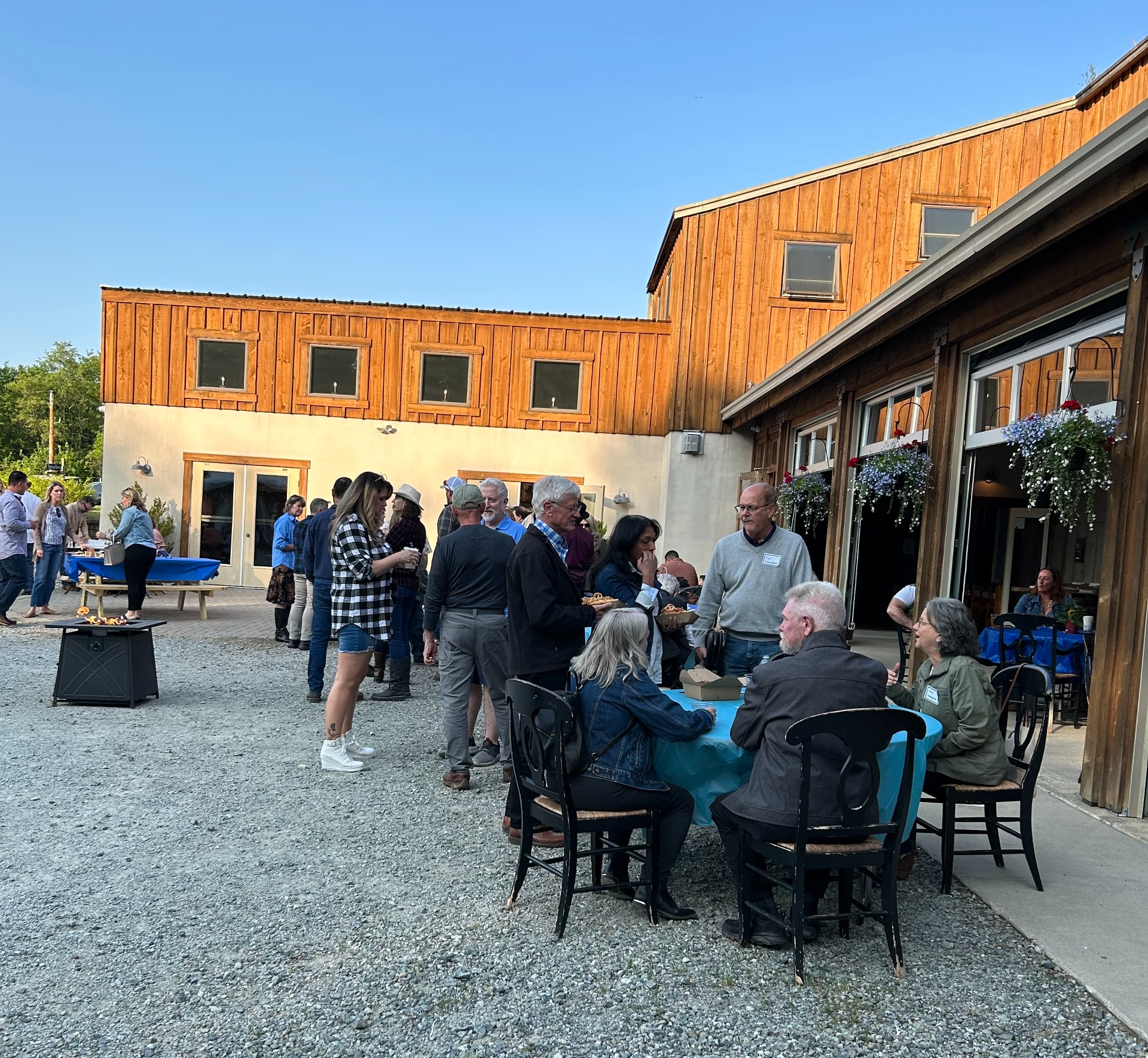
What’s a typical visit to Paradocx Vineyard like?
Brown: We want you to come in, feel like part of our family, appreciate PA wine and the Paradocx experience! We have a diverse wine menu because we know some people are looking for big, bold dry wines and some are sweet wine lovers, and we have both and everything in between. We also have a small bistro-style food menu that’s seasonally and locally inspired. Our staff is knowledgeable and can answer questions!
Our top-selling wine is our Barn Red, that’s very much our flagship. Not only is it available in a bottle, but we also sell it in a paint can, which is our patented packaging. The counterpart to our Barn Red is the White Wash. Both are semi-sweet, and fantastic representations of what Pennsylvania has to offer wine lovers.
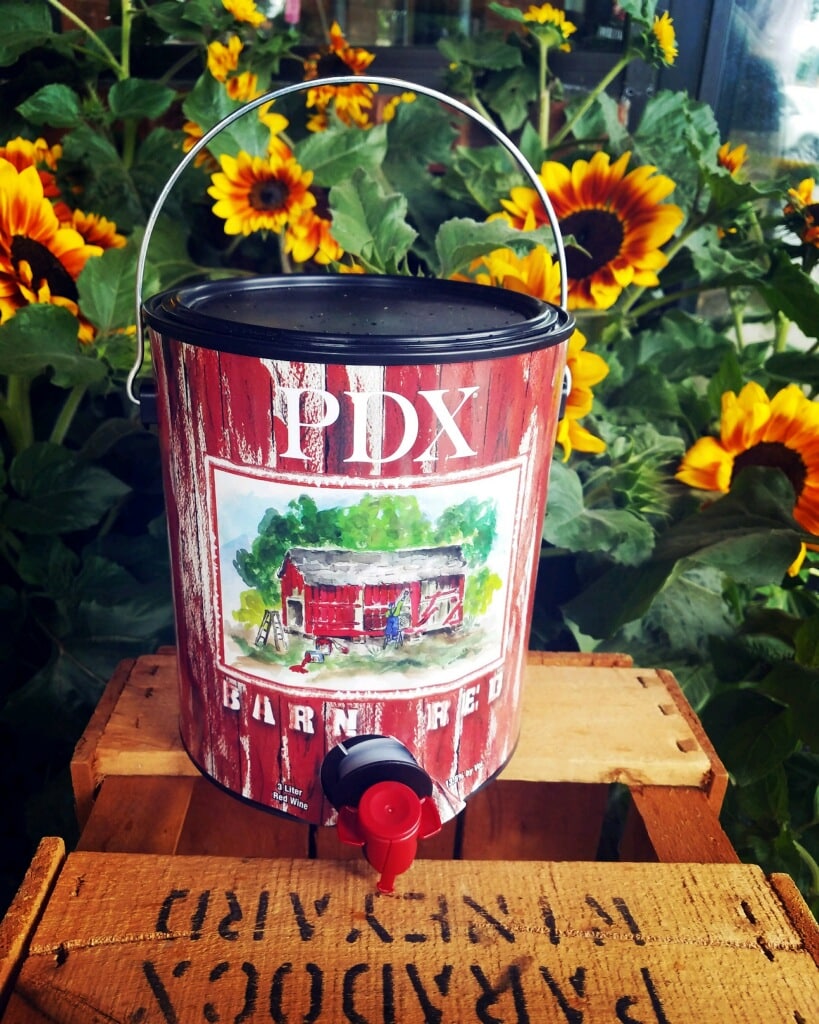
You’ve been part of PA’s wine community for decades now. What have you observed in that time? Any predictions or thoughts for the future of our local wine industry?
Hoffman: Pennsylvania’s wine industry has exploded since we started planting in ‘98 in terms of the number and variety of wineries throughout the state. In our particular area, vineyards and wineries are focused on being part of the fabric of the agricultural and local communities. I think the future is for us to further position ourselves as a local product. That’s where many consumers are going in terms of eating and health habits: more local. People want to know where their food and wine comes from.
For more information on Paradocx Vineyard, visit its website, and follow along on Instagram and Facebook. You can purchase its wine online, and find a number of Paradocx products in PA Fine Wine & Good Spirits stores, as well as on the menu at some Pennsylvania breweries and restaurants.
Find Paradocx Vineyard at 1833 Flint Hill Rd. in Landenberg, PA; phone: (610) 255-5684.
The PA Vines & Wines series was created in collaboration with the Pennsylvania Wine Association with Round 8, Act 39 grant funding from the Pennsylvania Liquor Control Board (PLCB).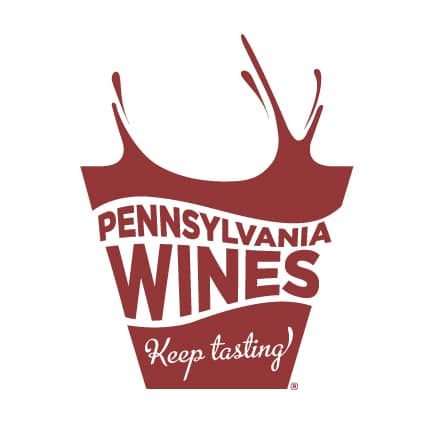
The Pennsylvania Winery Association (PWA) is a trade association that markets and advocates for the limited licensed wineries in Pennsylvania.
- Photos: Paradocx Vineyard
- Pennsylvania Wines logo: Pennsylvania Winery Association
